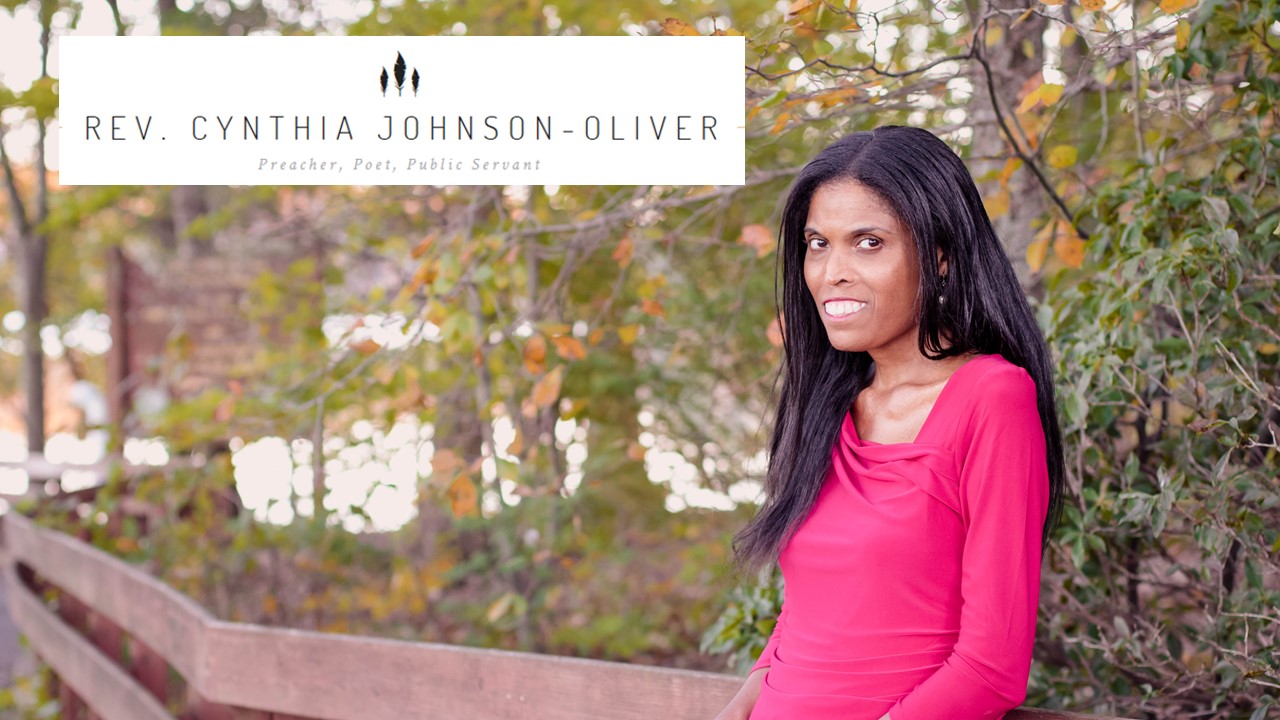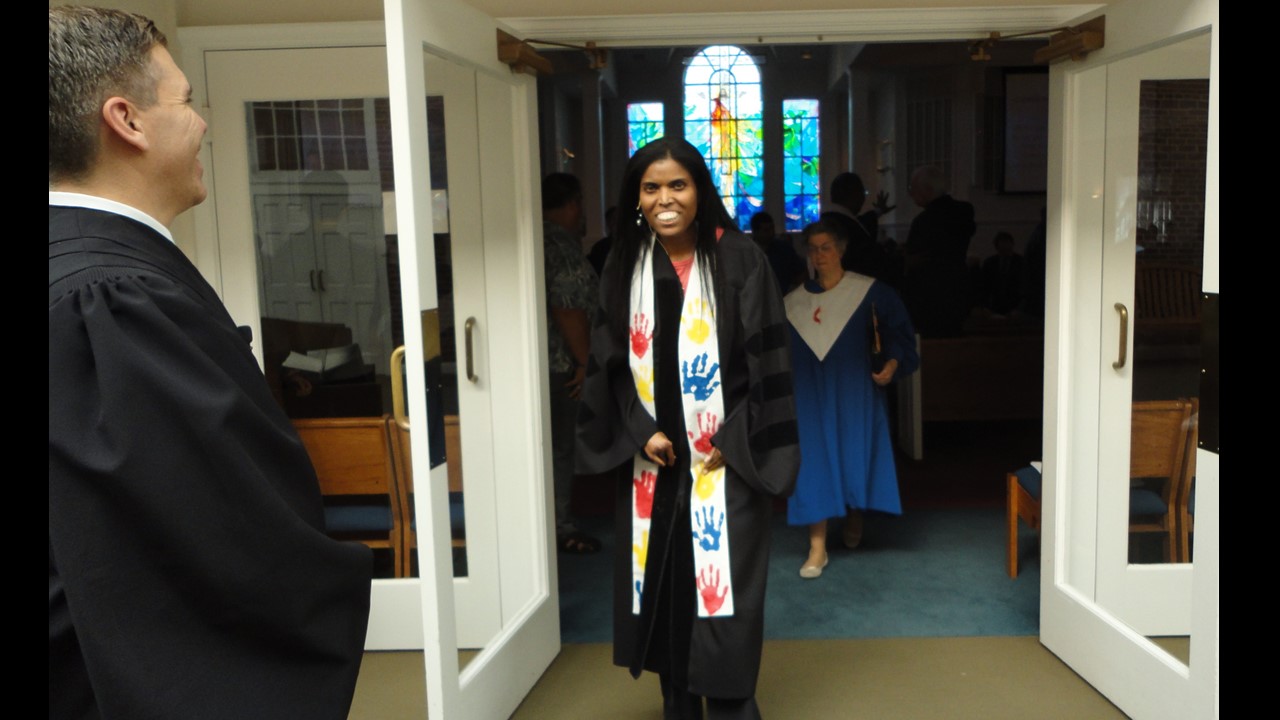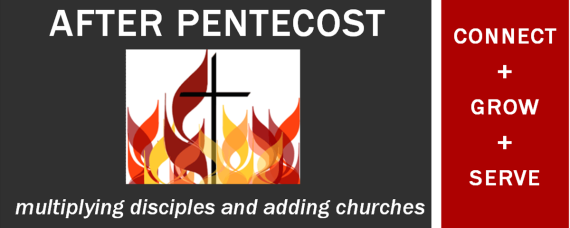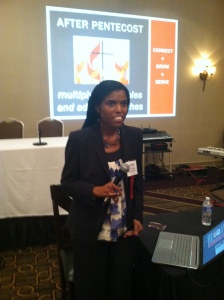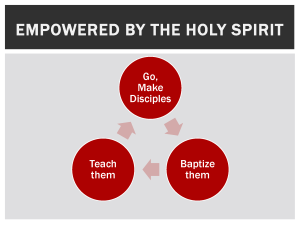Dear Friends,
Earlier this month, it was announced that this year, my 10th year at Annandale United Methodist Church, would be my last one as an associate pastor. Thus, it is quite fitting that my farewell Clergy Corner is published in our graduation issue. Why? Because I’ve said for many years that I would not leave Annandale as much as I would graduate from Annandale. In many ways, my family and I have grown up here. Thus, this moment is much more of a commencement than it is a departure, and the lessons I have learned here will undoubtedly last a lifetime. Here are a few of those lessons.
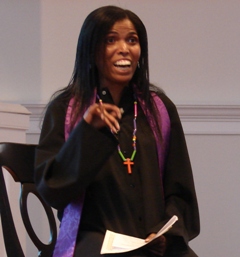
Be visionary. When I arrived at Annandale, I had not worked in several years due to a disability. I had not preached in three years, and I had not climbed stairs in many more. From my first visit to Annandale, for reasons not fully understood at the time, I began envisioning myself climbing the steps into the pulpit and preaching a sermon. I did not know anyone at the church, nor did I know of any job openings. I just had an intuition that AUMC was where I should be.
Within five months of my arrival, unbeknownst to me, the church had created the position, director of adult discipleship. I happened to meet with Pastor Jim Driscoll the day after the job description was approved by the Church Council. When I expressed interest in adult Christian education, Jim’s chin dropped in surprise. They never had the chance to post that job description; I was hired soon thereafter. A year later, I became an associate pastor. From that, I have learned that your dreams matter. Your visions matter. Visualization was a powerful tool for me; but alone, it was not enough.
Be creative. As beings created in the image of God, we reflect God’s image especially when we are creative. As co-creators with God, we possess the ability to create our lives and indeed, to create our world. And we exercise this creativity whether we acknowledge it or not. Look around you. Look at your life. This is the life that you have created. When we recognize our responsibility for the life we have created, we also unleash our power to create something new.
 When I began working at AUMC, the Academy of Discipleship existed only as a vision in the mind of church leadership. Beyond visioning, we had to create. Today, in its 10th year, the Academy’s classes and small groups continue to thrive. Now, I am graduating from Annandale with the intention of pursuing even bigger creative projects. The first and second projects are a biography and documentary film about my grandfather, who was the first African American to graduate from Vanderbilt University. The third project is the FaithJustice Foundation, a newly forming nonprofit organization born from my ministry here at AUMC. These projects require the courage to create, to reflect God’s image by calling those things which are not as though they are, and to bring a vision from idea to existence. This brings me to my next point.
When I began working at AUMC, the Academy of Discipleship existed only as a vision in the mind of church leadership. Beyond visioning, we had to create. Today, in its 10th year, the Academy’s classes and small groups continue to thrive. Now, I am graduating from Annandale with the intention of pursuing even bigger creative projects. The first and second projects are a biography and documentary film about my grandfather, who was the first African American to graduate from Vanderbilt University. The third project is the FaithJustice Foundation, a newly forming nonprofit organization born from my ministry here at AUMC. These projects require the courage to create, to reflect God’s image by calling those things which are not as though they are, and to bring a vision from idea to existence. This brings me to my next point.
Be bold. In A Return to Love, Marianne Williamson says:
Our deepest fear is not that we are inadequate. Our deepest fear is that we are powerful beyond measure. It is our light, not our darkness that most frightens us. We ask ourselves, who am I to be brilliant, gorgeous, talented, fabulous? Actually, who are you not to be? You are a child of God. Your playing small does not serve the world…. We were born to make manifest the glory of God that is within us.
Living my life has required boldness — from my first decision to live my best life despite physical challenges, to my willingness to explore faith and social justice as an African America woman pastor in a predominantly white church, to my courage to form a nonprofit, and to my boldness in trying something completely new: narrative nonfiction writing and documentary film. One bold step strengthened me to take the next step. I realized that in taking a risk, there was something to lose, but there was always much more to gain by abandoning my comfort zone and boldly co-creating the life I am called to live.
 Be you. I had plenty of reasons to attempt to be someone else, and they were mostly rooted in the same fears and insecurities that many possess. There was a time when I wanted to be like my grandfather who lived an extraordinary life. There was a time when I thought that I should copy my fellow Ivy League graduates and pursue the traditional markers of success. But those paths never felt right to me. Then one day, I realized that I could be something that no one else could be. I could be me. And I could do a better job at being me than I could at trying to be someone else.
Be you. I had plenty of reasons to attempt to be someone else, and they were mostly rooted in the same fears and insecurities that many possess. There was a time when I wanted to be like my grandfather who lived an extraordinary life. There was a time when I thought that I should copy my fellow Ivy League graduates and pursue the traditional markers of success. But those paths never felt right to me. Then one day, I realized that I could be something that no one else could be. I could be me. And I could do a better job at being me than I could at trying to be someone else.
It took an uncomfortable path of self-discovery for me to realize that my gifts and talents, flaws and imperfections, hopes and dreams all combine to form a unique individual created in the image of the divine, God’s workmanship. And like all of creation, God looks at me and says, “That’s good!” To paraphrase the story told by Rabbi Zusya, when I get to heaven, God won’t ask me why I wasn’t more like Moses or Peter or Mary. God will simply ask why I wasn’t more like Cynthia. God created you and me, and we have every reason to believe that God knew what God was doing.
As I reach this milestone, along with our graduates, I, too, graduate and commence the next steps of my journey. I do so not expecting that life will be perfect, but that God will lead me in the right paths. I got out of my AUMC experience exactly what I put into it: my heart. When living whole-heartedly, all things are possible. And that brings me to my final point: indeed, for the lessons learned, for the loving kindness you have shown to my family and for the joy of sharing Christ with you, I will always be grateful.
Blessings,
Rev. Cynthia Johnson-Oliver
The following sources influenced the ideas reflected in this essay:
Julia Cameron, The Artist’s Way: A Spiritual Path to Higher Creativity (2002)
Jack Canfield, The Success Principles (2015)
Joel Osteen, Your Best Life Now (2015)
Richard Rohr, Immortal Diamond: The Search for our True Self (2012)
Marianne Williamson, A Return to Love (1996).
